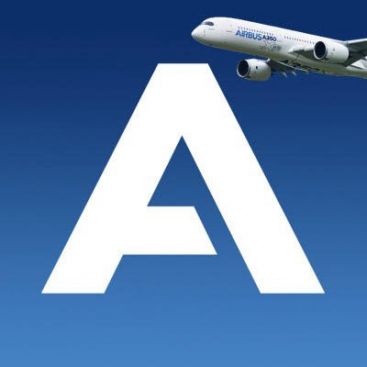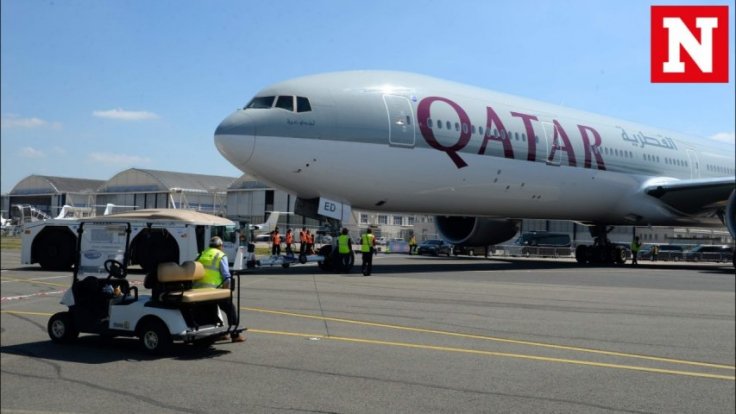Airbus dramatically raised the stakes in a dispute with Qatar Airways over skin flaws on A350 jetliners on Thursday, accusing the Gulf carrier of misrepresenting the problem as a safety issue and calling for independent legal advice.
Airbus has been locked in a row with one of the industry's biggest buyers for months over damage to paint and an underlying layer of lightning protection, which Qatar Airways says has led to the grounding of 20 jets by its domestic aviation regulator.
Breakdown in Relations
In a rare statement airing a breakdown in relations between the planemaker and the launch customer of Europe's premier long-haul jet, Airbus said the A350s had been declared safe to fly by European regulators despite some "surface degradation."

"The attempt by this customer to misrepresent this specific topic as an airworthiness issue represents a threat to the international protocols on safety matters," it said.
Airbus officials confirmed the statement referred to Qatar Airways.
A spokesman for the airline said it would not comment on the Airbus statement before reviewing it.
Industry sources said there was no indication Qatar Airways was ready to back down in the dispute, which has already prompted it to exclude Airbus from a multi-billion-dollar deal to replace its 35 freighters, which is set to go to Boeing.
At stake is the credibility of two of the industry's most powerful players and a potential compensation battle over hundreds of millions of dollars in estimated grounding costs.
The row widened last week when documents seen by Reuters revealed at least five other airlines had complained about paint or other skin flaws since late 2016. Delta Air Lines joined the list of affected carriers this week, but so far only Qatar has seen jets being grounded .
Corroded Lightning Protection
Exclusive photographs published Reuters by Reuters have shown exposed and corroded lightning protection beneath cracked paint.
"We have worked actively with Qatar Airways in order to minimise the impact of this in-service surface degradation on their aircraft," Philippe Mhun, Airbus Executive Vice President Programmes & Services, told reporters.

Mhun said Airbus had offered solutions to Qatar Airways from patches, to repairs of the anti-lightning material or repainting of entire aircraft, but Qatar Airways had declined the offer.
Industry sources say Qatar Airways is reluctant to implement short-term fixes without a full breakdown of the root cause.
Chief Executive Akbar Al Baker said in London last week, "we don't know if it is an airworthiness issue. We also don't know that it is not an airworthiness issue."
The European Union Aviation Safety Agency (EASA) has said "no potential airworthiness issue has been identified to date" and ruled out a link with a separate manufacturing flaw which prompted it to issue a draft safety directive for 13 A350s.
Airbus says it understands the cause, though sources say a formal diagnosis may require further tests on surface ageing.
Arbitration
The legal step taken by Airbus comes under a contract clause allowing for arbitration, Mhun said.
Usually arbitration is carried out away from the public gaze, but Airbus said it was acting to "defend its position and reputation" while calling for a "constructive dialogue".
Qatar Airways says its own brand and wide-body operations are at stake due to the grounding of 20 of its A350 jets, less than a year before the Gulf state hosts the FIFA World Cup.
Some airlines have been pressuring Airbus to head off any damage to their brands as a result of the bitter public row between Airbus and a high-profile customer which has clashed with planemakers in the past, through rarely to such a degree.
"I have never seen anything like this. It is not only a problem between Airbus and Qatar Airways but it is also designed to prevent further damage to the A350's reputation with all operators," said aviation adviser Bertrand Grabowski.








